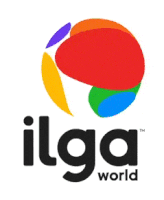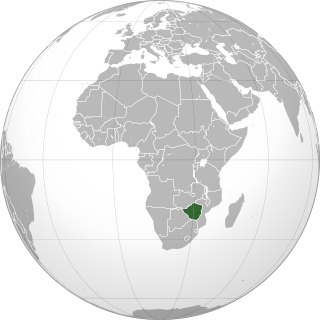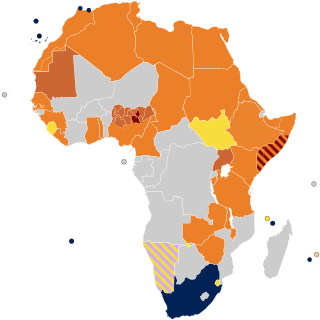Related Research Articles

Lesbian, gay, bisexual, transgender and queer (LGBTQ) movements are social movements that advocate for LGBTQ people in society. Although there is not a primary or an overarching central organization that represents all LGBTQ people and their interests, numerous LGBT rights organizations are active worldwide. The first organization to promote LGBT rights was the Scientific-Humanitarian Committee, founded in 1897 in Berlin.

Queer is an umbrella term for people who are not heterosexual or are not cisgender. Originally meaning 'strange' or 'peculiar', queer came to be used pejoratively against LGBT people in the late 19th century. From the late 1980s, queer activists began to reclaim the word as a neutral or positive self-description.

The International Lesbian, Gay, Bisexual, Trans and Intersex Association (ILGA) is a LGBTQ+ rights organization.
Anti-LGBTQ rhetoric comprises themes, catchphrases, and slogans that have been used in order to demean lesbian, gay, bisexual, transgender and queer (LGBTQ) people. They range from the demeaning and the pejorative to expressions of hostility towards homosexuality which are based on religious, medical, or moral grounds. It is widely considered a form of hate speech, which is illegal in countries such as the Netherlands, Norway, and Sweden.
"Gay agenda" or "homosexual agenda" is a pejorative term used by sectors of the Christian religious right as a disparaging way to describe the advocacy of cultural acceptance and normalization of non-heterosexual sexual orientations and relationships. The term originated among social conservatives in the United States and has been adopted in nations with active anti-LGBT movements such as Hungary and Uganda.
The Al-Fatiha Foundation was an organization which advanced the civil, political, and legal rights of LGBTQ+ Muslims. It was founded in 1997 by Faisal Alam, a Pakistani American LGBTQ+ rights activist, and was registered as a nonprofit organization in the United States until 2011.
The International Day Against Homophobia, Biphobia and Transphobia (IDAHOBIT) is observed on 17 May and aims to coordinate international events that raise awareness of LGBT rights violations and stimulate interest in LGBT rights work worldwide. By 2016, the commemorations had taken place in over 130 countries.

Homophobia encompasses a range of negative attitudes and feelings toward homosexuality or people who identify or are perceived as being lesbian, gay or bisexual. It has been defined as contempt, prejudice, aversion, hatred, or antipathy, may be based on irrational fear and may sometimes be attributed to religious beliefs.

Lesbian, gay, bisexual, and transgender (LGBT) people in Zimbabwe face legal challenges not experienced by non-LGBTQ residents. Since 1995, the Government of Zimbabwe has carried out campaigns against LGBT rights. Sodomy is classified as unlawful sexual conduct and defined in the Criminal Code as either anal sexual intercourse or any "indecent act" between consenting adults. Since 1995, the government has carried out campaigns against both homosexual men and women.

Lesbian, gay, bisexual, and transgender (LGBT) rights in Africa are generally poor in comparison to the Americas, Western Europe and Oceania.

Historically speaking, lesbian, gay, bisexual, and transgender (LGBTQ) people have not been given equal treatment and rights by both governmental actions and society's general opinion. Much of the intolerance for LGBT individuals come from lack of education around the LGBT community, and contributes to the stigma that results in same-sex marriage being legal in few countries (31) and persistence of discrimination, such as in the workplace.
Racism is a concern for many in the Western lesbian, gay, bisexual and transgender (LGBTQ) communities, with members of racial, ethnic, and national minorities reporting having faced discrimination from other LGBT people.

Lesbian, gay, bisexual, and transgender (LGBT) people generally have limited or highly restrictive rights in most parts of the Middle East, and are open to hostility in others. Sex between men is illegal in 9 of the 18 countries that make up the region. It is punishable by death in four of these 18 countries. The rights and freedoms of LGBT citizens are strongly influenced by the prevailing cultural traditions and religious mores of people living in the region – particularly Islam.

The following outline offers an overview and guide to LGBTQ topics:
Homophobia in ethnic minority communities is any negative prejudice or form of discrimination in ethnic minority communities worldwide towards people who identify as–or are perceived as being–lesbian, gay, bisexual or transgender (LGBT), known as homophobia. This may be expressed as antipathy, contempt, prejudice, aversion, hatred, irrational fear, and is sometimes related to religious beliefs. A 2006 study by the Joseph Rowntree Foundation in the UK found that while religion can have a positive function in many LGB Black and Minority Ethnic (BME) communities, it can also play a role in supporting homophobia.

Rainbow capitalism is the involvement of capitalism, corporate capitalism, and consumerism in appropriating and profiting from the LGBT movement. It developed in the 20th and 21st centuries as the LGBT community became more accepted in society and developed sufficient purchasing power, known as pink money. Early rainbow capitalism was limited to gay bars and gay bathhouses, though it expanded to most industries by the early-21st century.
Sexual diversity or gender and sexual diversity (GSD), refers to all the diversities of sex characteristics, sexual orientations and gender identities, without the need to specify each of the identities, behaviors, or characteristics that form this plurality.
Kapya John Kaoma is a Zambian, US-educated scholar, pastor and human rights activist who is most noted for his pro-LGBTQ+ activism, particularly regarding Africa.
Brazil Without Homophobia is a non-governmental initiative launched in 2004 by the Special Secretariat for Human Rights meant to tackle homophobia through public policy.
References
- ↑ Epprecht, Marc (2006). "All Africa Rights Initiative". In Gerstner, David A. (ed.). Routledge International Encyclopedia of Queer Culture (1 ed.). Routledge. p. 36. ISBN 9780415306515 . Retrieved 2022-07-17.
- ↑ Lind, Amy (2010). Development, Sexual Rights and Global Governance. Taylor & Francis. ISBN 9781135244590 . Retrieved 2022-07-17.
- ↑ Martel, Frédéric (2018). Global Gay: How Gay Culture Is Changing the World. Translated by Baudoin, Patsy. MIT Press. p. 139. ISBN 9780262537056 . Retrieved 2022-07-17.
- ↑ Clark, Howard (2009). People Power: Unarmed Resistance and Global Solidarity. Pluto Press. pp. 173, 175. ISBN 9780745329024 . Retrieved 2022-07-17.
- 1 2 Richardson, Eric M. (2005). "Africa, LGBT Youth and Issues in". In Sears, James Thomas (ed.). Youth, Education, and Sexualities: An International Encyclopedia. Vol. 1. Greenwood Publishing Group. pp. 29–30. ISBN 9780313327544 . Retrieved 2022-07-17.
- ↑ Harcourt, Wendy (2013). Body Politics in Development: Critical Debates in Gender and Development. Zed Books. ISBN 9781848136182 . Retrieved 2022-07-17.
- ↑ Sources variously report the number as 55 or 65.
- ↑ Epprecht, Marc (2013). "Politics". Hungochani: The History of a Dissident Sexuality in Southern Africa (2 ed.). McGill–Queen's University Press. p. 219. ISBN 9780773588783 . Retrieved 2022-07-17.
- ↑ Currier, Ashley; Thomann, Matthew (2016). "Gender and sexual diversity organizing in Africa". In Fadaee, Simin (ed.). Understanding Southern Social Movements. Taylor & Francis. ISBN 9781317484080 . Retrieved 2022-07-17.
- ↑ Goering, Laurie (2004-06-09). "Africa's gays persecuted as cause of ills". Chicago Tribune . Archived from the original on 2018-11-16. Retrieved 2022-07-17.